Lead story
Be PROMPT!

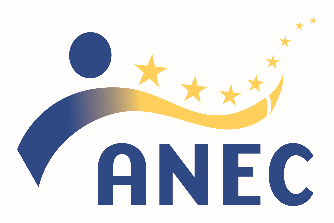
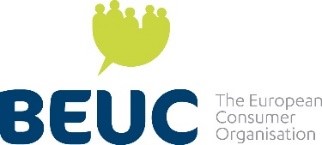
![]()
![]()



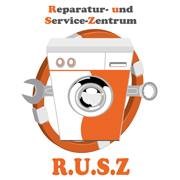
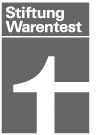

![]()
![]()

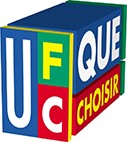
ANEC, as part of a consortium including consumer groups, researchers and repair companies, has just launched a new 4-year project to address the premature obsolescence of products. The consortium is funded by the EU research programme, Horizon 2020, and is a concrete outcome of the EU’s intention to set up a circular economy. The project, “PROMPT” (PRemature Obsolescence Multi-stakeholder Product Testing programme), aims to encourage products to be designed to last longer. Its partners will join forces to establish an independent test assessing the lifetime of consumer products. The consortium will also explore how the test method can be used to improve product design, consumer information, technical standards and legislation. Consumer views on product lifetimes will also be collected in several European countries.
ANEC will lead the tasks relating to standardisation, and coordinate dissemination of the project results to CEN-CENELEC & ETSI, and to ISO & IEC. For more, see News on the ANEC Sustainability webpage.
Horizontal
ANEC comments on AUWP 2020
The European Commission (EC) is consulting on the standardisation priorities for next year, as it does annually. Please find here the EC’s draft Annual Union Work Programme for European Standardisation 2020 (AUWP 2020).
As a member of the Committee on Standards (CoS), ANEC had the opportunity to comment on the draft AUWP 2020. We expressed our views on general aspects of consumer relevance: Artificial intelligence, Internet of Things, Cybersecurity, Autonomous vehicles, Energy efficiency, International cooperation and Inclusiveness. We also commented on the actions to be implemented in 2020: Electronic Identification and Authentication and trust Services, Low Voltage Directive and European Accessibility Act.
Our Position Paper can be found here.
EP adopts proposal on enforcement & compliance
We welcome that the European Parliament (EP) plenary on April 17 2019 approved the new Regulation on compliance and enforcement (2017/0353(COD)).
Despite last minute attempts by some MEPs to delay or water down the provisions of the Regulation, the text was adopted. It contains the positive points for consumers we had previously addressed, such as better traceability of products in the supply chain, more control of products sold online, and the setting up of an EU-wide network to coordinate joint enforcement actions by national market surveillance authorities. These national authorities will now also be able to participate in more joint testing through a network of EU-designated laboratories.
Follow the link to the Press Release we issued together with BEUC to welcome the EP approval.
Towards gender-responsive standards
14 May saw numerous national, regional and international standards bodies and standards development organisations sign the Declaration on Gender Responsive Standards at the Palais des Nations in Geneva. The Declaration seeks to support standards bodies in developing gender-equality action plans tailored to their own priorities. Each signatory can define its action plan, choosing among the examples given in the Annex to the Declaration.
The Declaration is linked to the Sustainable Development Goals (SDGs) of the United Nations: Fighting poverty among women (SDG1); Decreasing maternal mortality (SDG3); Ensuring girls and women have equal access to education (SDG4); Creating employment opportunities for women (SDG8) and Fighting gender-based violence (SDG16).
ANEC collaborated in the drafting of the Declaration and encouraged its members to lobby their National Standardisation Bodies to sign it. We are pleased several Bodies did, as did CEN-CENELEC.
You can watch the opening of the signing ceremony here.
Child Safety
Standard for cords and drawstrings under revision
CEN/TC 248/WG20 ‘Safety of children’s clothing’ has started to revise EN 14682:2014 ‘Safety of children's clothing – Cords and drawstrings on children's clothing – Specifications’. In March, ANEC supported the activation of a preliminary work item for this revision and appointed an expert to participate in the work. Cords and drawstrings on children’s clothing present a choking and strangulation hazard, particularly when used in the head and neck areas of garments. It was a proposal from ANEC that led to development of the European Standard EN 14682:2007, which bans the use of cords and drawstrings in the head and neck area of clothes meant for children below the age of seven years. We have asked for cords connecting mittens to be considered during the latest revision.

Accessibility
ANEC-EDF webinar on the Design for All standard
On May 21, ANEC, together with the National Standards Authority of Ireland and the European Disability Forum, hosted a webinar on the European Standard EN 17161 “Design for All - Accessibility following a Design for All approach in products, goods and services - Extending the range of users”, and EC Mandate M/473 on Design for All. The speakers were Chiara Giovannini, ANEC Senior Manager Policy & Innovation, Elizabeth O’Ferrall, Standards Development, NSAI, and Alejandro Moledo, Policy Coordinator at EDF. The webinar focused on the origins of the M/473 and the purpose of EN 17161.
We were delighted that more than 100 people joined the webcast.

ANEC at ERA seminar in June
From 5 June to 7 June, the Academy of European Law (ERA) will host a seminar on EU Disability Law and the UNCRPD. The seminar is intended for the members of the judiciary and will be taking place in Trier, Germany. It is designed to address the experiences of persons with disabilities during court proceedings. Persons with disabilities often face significant barriers in judicial proceedings and their requirements need to be taken into account and addressed in the provision of legal and judicial services.
ANEC’s Chiara Giovannini will be lecturing on accessibility standards and public procurement.
More information on the topics and the terms & conditions of participation is available here.
Services
ANEC joins ISO TC 324 'Sharing economy'
ANEC has nominated a representative to join the new ISO TC 324 ‘Sharing economy’. This comes following our comments on the ISO International Workshop Agreement (IWA) on the Sharing Economy.
In our Position Paper on Sharing Economy – Input to Draft International Workshop Agreement, ANEC and Consumers International (CI) proposed a review of the definitions of actors involved to improve clarity of the responsibilities in this new economic model and thus facilitate a more precise framework. Hence we very much welcome the creation of TC 324 which will meet for the first time in June in Tokyo.
News from ANEC member countries
Italy - UNI Central Technical Commission
We were delighted to learn from Ruggero Lensi, the Director-General of UNI, the Italian national standards body, that Gianni Cavinato, a member of the National Council of Consumers and Users (CNCU), has been appointed Chair of the UNI Central Technical Commission. The Commission is UNI’s governance body for technical matters, and is responsible for monitoring all of UNI’s standards-making activities, including its participation in European and international standardisation. This is the first time a representative of the consumer movement has been assigned such a considerable role in UNI, and we find the appointment of Mr Cavinato extremely welcome. In reply to Mr Lensi, ANEC Secretary-General, Stephen Russell, said he saw the appointment as clear evidence of the commitment of UNI and Italy to implement the provisions of Regulation (EU) 1025/2012, particularly in ensuring inclusion of societal stakeholders in the standards development process. He hoped other national standards bodies would follow suit.
Sweden - Study on safety belt use
NTF, the Swedish National Society for Road Safety, has conducted a survey of how over 3.500 children travelled by car on their way to preschool. The study was conducted in autumn 2017, and the report was recently shared with ANEC. The results show the proportion of children seated without a safety belt was 2.5% across all age groups. 110 children shorter than 135cm were found not to have used a CRS (Child Restraint System) and were seated directly on the car seat. 8 children aged up to 3 years of age travelled in a baby seat or rearward-facing child seat in the passenger area with the airbag active, so posing a lethal threat in case of collision. The full report can be found here (Swedish with a summary in English).
| List of meetings 2019 |
For comments or if you wish to write an article for the ANEC Newsletter, please contact: Marijana ANTAROROVA (This email address is being protected from spambots. You need JavaScript enabled to view it.).


